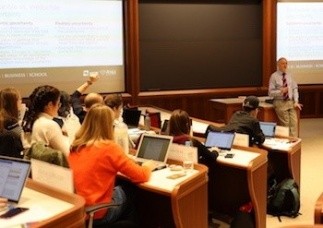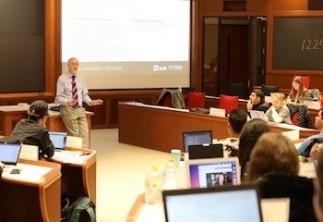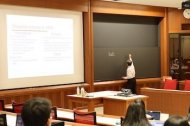No business operates in an environment of complete certainty - the best laid plans can be scuppered at a moment's notice due to any number of political, social, climate, economic or health related changes, where small shocks can have a big impact. Whilst the future can't always be predicted, a sensible program of risk management should help to mitigate and plan for a variety of risks, large or small.
This course introduces students to the wide range of concepts and techniques for identifying, managing and communicating risk in a holistic way that prioritizes appropriate responses. The unit takes a structured approach to the issue of risk management, strategy development and the implementation of systems and cultures likely to promote a risk aware organisation. It offers insights into how processes, technologies and techniques for managing risk can be used to benefit from upside risk and mitigate downside risk, giving a broad overview of the relationship between uncertainty, hazard and risk, the role of the board and governance, risk tolerances, risk profiles, risk workshops, and the allocation of resources, while focusing on the principles that determine business success. In addition, it considers innovative new concepts such as hierarchical risk structures, alignment of risks with the business model, creation of a central risk function, and the role of an ERM knowledge warehouse.
This course is taught by a mixture of the case method, problem solving exercises and class discussion, which allows students to develop problem-solving and problem-finding skills through reliving the management case examples from their own perspectives and applying frameworks to specific problems. The Participant Centered Learning involving discussions among students and role-plays provides students with effective and rich learning experiences, through which we aim at broadening students’ visions and understandings of the world as business professionals as well as teaching them necessary knowledge in business.
On completing the unit students will have a more profound understanding of how to implement a risk management system and meet the challenges facing organisations in the technology age.
Prof. Houghton is a teaching and research academic in the School of Economics and finance at Curtin University faculty of Business and Law where he teaches economics and energy-related subjects to postgraduate students. He was previously Director of the specialist energy MBA and stream leader in the Masters of Predictive Analytics. After graduating from Imperial College with an MEng, he worked for 5 years in project management for Alstom where he oversaw the construction of a number of power plants and managed a team of commercial engineers. He went on to complete an MBA at London Business School and subsequently worked for 8 years in corporate finance reaching the position of Director at Nomura International in London. Since leaving the banking industry, he has worked as an academic, receiving his PhD from the University of Strathclyde, and is now a research and teaching academic at Curtin University.

 Brochure
Brochure
 Info Session
Info Session
 Application
Application
 Alumni Voices
Alumni Voices







